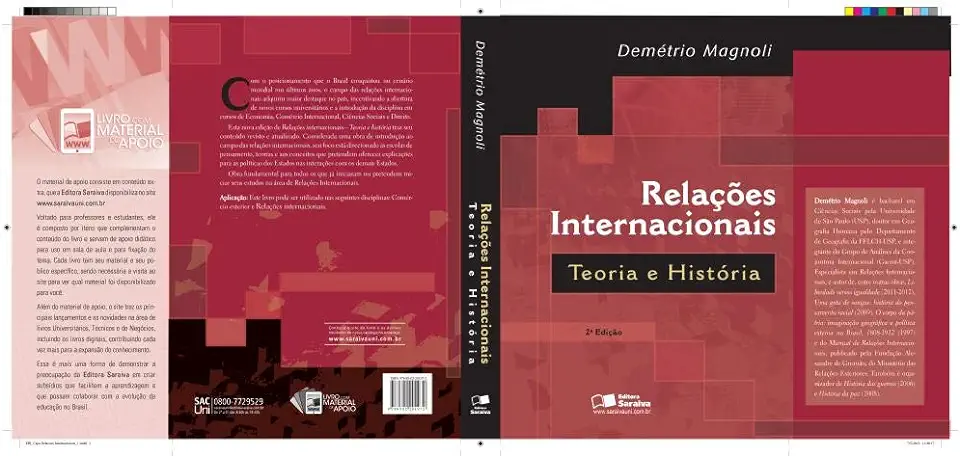
International Relations - Theory and History - Demétrio Magnoli
International Relations - Theory and History: A Comprehensive Guide to Understanding the Complexities of Global Affairs
Introduction: Delving into the Intricate World of International Relations
In today's interconnected world, understanding international relations is no longer a luxury reserved for diplomats and scholars; it has become an essential skill for anyone seeking to navigate the complexities of global affairs. Demétrio Magnoli's comprehensive and engaging book, "International Relations - Theory and History," serves as an invaluable guide to comprehending the intricate dynamics that shape the interactions between nations, cultures, and economies.
Theoretical Foundations: Unraveling the Complexities of International Relations
Magnoli begins by establishing a solid theoretical foundation, introducing readers to the various schools of thought that have shaped the study of international relations. From realism and liberalism to constructivism and post-colonialism, the book provides a comprehensive overview of the key theories that have influenced the field. This theoretical grounding equips readers with the tools to analyze and interpret the complex interactions that occur on the global stage.
Historical Evolution: Tracing the Transformation of International Relations
The book then embarks on a captivating journey through the history of international relations, tracing the evolution of global interactions from ancient times to the present day. Magnoli skillfully weaves together historical events, diplomatic negotiations, and cultural exchanges to illustrate how the international system has evolved over time. This historical perspective allows readers to gain a deeper understanding of the forces that have shaped the modern world and the challenges that lie ahead.
Key Concepts and Issues: Navigating the Labyrinth of Global Affairs
Throughout the book, Magnoli delves into key concepts and issues that are central to understanding international relations. These include topics such as sovereignty, national interest, power dynamics, globalization, and the role of international organizations. Each concept is thoroughly explained and analyzed, providing readers with a comprehensive grasp of the intricate factors that influence global interactions.
Case Studies: Illuminating the Practical Application of Theory
To further enhance readers' understanding, Magnoli presents a series of case studies that illustrate how theoretical concepts play out in real-world scenarios. These case studies span a wide range of historical periods and geographical regions, from the Cold War to the Arab Spring, and from the European Union to the Asia-Pacific region. By examining these concrete examples, readers gain a deeper appreciation for the complexities of international relations and the challenges faced by policymakers.
Conclusion: Empowering Readers to Engage in Global Discourse
"International Relations - Theory and History" concludes by emphasizing the importance of understanding international relations in today's interconnected world. Magnoli argues that a solid grasp of the field is essential for informed decision-making, effective diplomacy, and responsible global citizenship. The book empowers readers to engage in informed discussions about global issues, contribute to the development of effective policies, and navigate the complexities of the international arena with greater confidence and understanding.
Why You Should Read This Book:
- Gain a comprehensive understanding of the theories, history, and key concepts of international relations.
- Develop the ability to analyze and interpret complex global interactions.
- Explore real-world case studies that illustrate the practical application of theory.
- Become an informed and engaged global citizen, capable of contributing to meaningful discussions about international affairs.
"International Relations - Theory and History" is an essential resource for students, scholars, policymakers, and anyone seeking to navigate the complexities of the globalized world. With its engaging writing style, comprehensive coverage, and insightful analysis, this book is a must-read for anyone interested in understanding the dynamics that shape our interconnected planet.